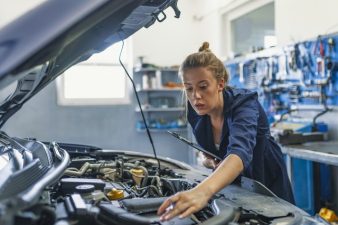Auto Repair and Services
Auto /Auto repair and services encompass a broad range of maintenance and repair work conducted on vehicles to ensure they operate efficiently and safely. Regular maintenance and timely repairs can extend the life of a vehicle, improve performance, and enhance safety on the road. This article delves into the different aspects of auto repair and services, the importance of regular maintenance, and tips for choosing the right auto repair shop.
Table of Contents
- Understanding Auto Repair Services
- Types of Auto Repair Services
- Common Auto Repair Issues
- The Importance of Regular Maintenance
- Benefits of Regular Maintenance
- Maintenance Schedule
- Choosing the Right Auto Repair Shop
- Factors to Consider
- Questions to Ask
- DIY Auto Repair
- Basic Tools for Auto Repair
- Common DIY Repairs
- Conclusion
Understanding Auto Repair Services
Types of Auto Repair Services
Auto repair services can be categorized into several types, depending on the specific needs of the vehicle. Understanding these services can help vehicle owners better manage their car’s maintenance and repair needs.
- Mechanical Repairs: These include work on the engine, transmission, brakes, and exhaust systems. Mechanical issues are often more complex and may require specialized tools and knowledge to diagnose and repair.
- Electrical Repairs: Modern vehicles are equipped with numerous electrical components, including batteries, alternators, and wiring systems. Electrical repairs often involve diagnosing issues with these components and making necessary repairs or replacements.
- Bodywork and Collision Repairs: After an accident, vehicles often require bodywork to repair dents, scratches, and other damage. Collision repair specialists focus on restoring the vehicle’s exterior and frame.
- Tire Services: This includes tire rotation, alignment, balancing, and replacement. Proper tire maintenance is essential for vehicle safety and performance.
- Fluid Changes: Regular fluid changes, including oil changes, coolant, transmission fluid, and brake fluid, are crucial for keeping a vehicle running smoothly.
- Preventive Maintenance: This includes routine checks and services such as inspections, filter replacements, and battery checks to prevent future issues.
Common Auto Repair Issues
Several common auto repair issues can affect the performance and safety of vehicles:
- Engine Problems: Symptoms include unusual noises, decreased performance, and warning lights on the dashboard. Common causes are worn-out parts, oil leaks, and overheating.
- Brake Issues: Squeaking noises, a spongy brake pedal, and decreased stopping power indicate brake problems. These issues can stem from worn brake pads, low fluid levels, or issues with the brake lines.
- Transmission Troubles: Slipping gears, delayed shifting, or strange noises can signal transmission problems. These issues can be complex and costly to repair.
- Electrical Failures: Issues such as dead batteries, faulty starters, or malfunctioning alternators can lead to electrical failures. Diagnosing electrical problems often requires specialized knowledge.
- Cooling System Failures: Overheating engines often indicate problems with the cooling system, such as leaks or faulty thermostats. Regular coolant changes can help prevent these issues.
The Importance of Regular Maintenance
Benefits of Regular Maintenance
Regular maintenance of vehicles is essential for several reasons:
- Safety: Regular inspections and maintenance help identify potential issues before they become serious problems. This ensures that the vehicle remains safe to drive.
- Cost Savings: Preventive maintenance can save money in the long run by addressing small issues before they escalate into expensive repairs.
- Improved Performance: Routine maintenance ensures that the vehicle operates efficiently, improving fuel economy and overall performance.
- Extended Vehicle Lifespan: Regularly maintained vehicles typically have a longer lifespan, allowing owners to maximize their investment.
- Resale Value: A well-maintained vehicle retains its value better than one that has been neglected. Proper maintenance records can be a selling point for potential buyers.
Maintenance Schedule
A regular maintenance schedule is essential for keeping a vehicle in good condition. While the specifics can vary based on the make and model of the vehicle, here are some general guidelines:
- Oil Change: Every 3,000 to 5,000 miles, depending on the type of oil used and driving conditions.
- Tire Rotation and Alignment: Every 5,000 to 7,500 miles to promote even wear.
- Brake Inspection: Every 10,000 miles, or sooner if there are any signs of wear.
- Fluid Checks: Every 5,000 miles, including oil, coolant, transmission fluid, and brake fluid.
- Battery Check: At least once a year, especially in extreme weather conditions.
Choosing the Right Auto Repair Shop
Factors to Consider
Selecting the right auto repair shop can significantly impact the quality of service received. Here are some factors to consider:
- Reputation: Look for reviews and testimonials from previous customers. A shop with a good reputation is likely to provide quality service.
- Certifications: Ensure that the shop’s mechanics are certified and trained. Certifications from organizations like the National Institute for Automotive Service Excellence (ASE) can indicate a higher level of expertise.
- Services Offered: Choose a shop that offers a wide range of services to meet all of
